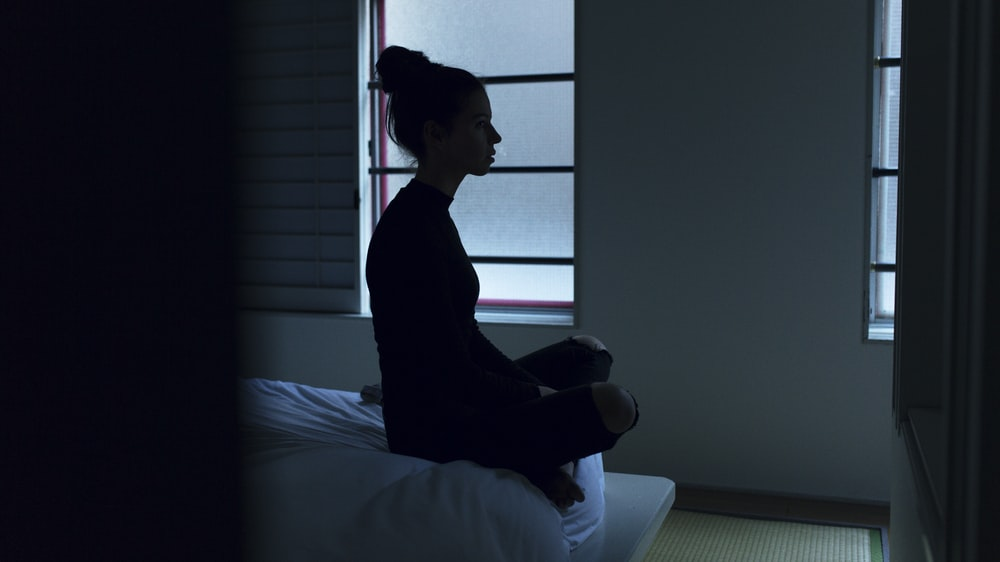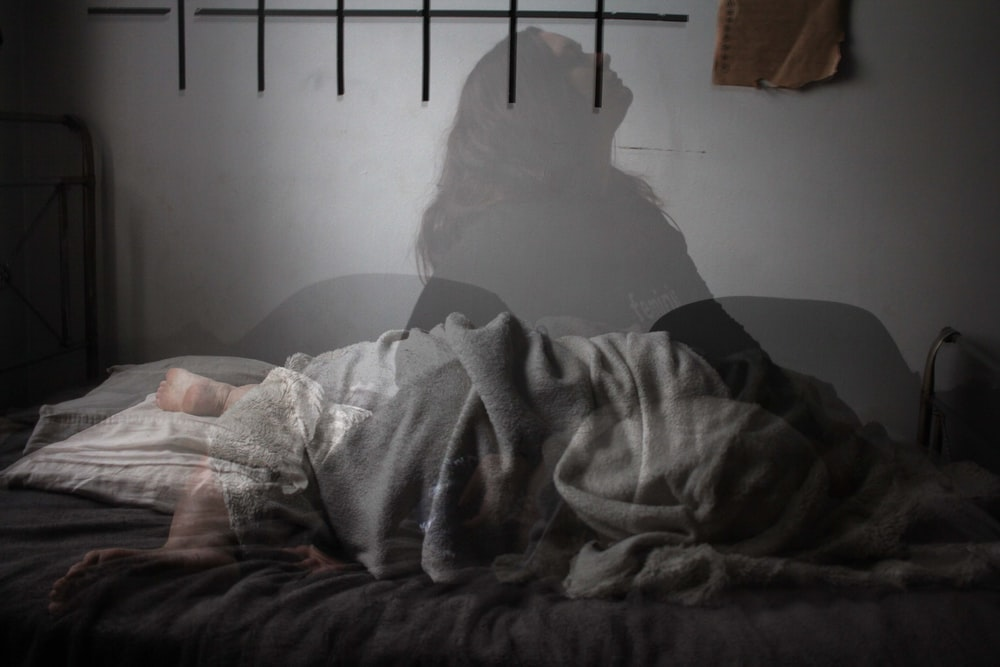Dealing with Insomnia: A Complete Guide
Insomnia affects millions of American adults. In fact, according to the American Sleep Association, almost 70 million Americans have a sleep disorder. That’s almost 35% of the adults in the US.
The likelihood of developing insomnia increases as people age. By the time a person turns 65, the probability of experiencing insomnia increases. Research shows that that 50% of adults over the age of 65 experience insomnia. If it’s not managed properly, it can lead to severe consequences, for instance, excessive daytime sleepiness. Research shows that excessive daytime sleepiness affects 10% to 20% of adults, and it's on the rise.
Signs as such can also lead to a higher risk of auto accidents. According to the National Highway Traffic Safety Administration, in 2017, drowsy driving resulted in 91,000 crashes and 50,000 injuries. It also resulted in the death of 800 people.
With so many people suffering from insomnia and facing increased health risks, it’s important to understand the concept of insomnia, and its causes and treatment options. In this post, we’ll take a look at all of this and more. Let’s begin.
What is Insomnia?

It’s a sleep disorder that makes it difficult to fall and stay asleep. It can also cause you to wake up before you need to. Once you’re up, the disorder makes it harder to fall back to sleep, and you might feel lethargic when you wake up. Moreover, insomnia doesn’t just decrease your energy levels and mood, but it can also compromise the quality of your life by making it difficult for you to function normally.
How much sleep one requires usually varies from person to person; some people might need 6 hours of sleep, while others can't perform well unless they get a good 10 hours of sleep. However, most adults require 7 to 8 hours of sleep at night. So, if you’re not getting that amount, your health and wellness will be compromised.
Types of Insomnia
There are different types of insomnia. They are categorized according to the duration, effect on sleep pattern, and cause. Let’s take a look at the different types of insomnia.
Short Term Insomnia
Short-term insomnia is also known as adjustment insomnia. It occurs for a brief time, during which an individual has trouble falling asleep. People experience it for 3 months or less, and symptoms usually go away on their own. But if people are not careful about managing short-term insomnia, it can easily lead to chronic insomnia.
This kind of insomnia affects everyone. However, it is more common in women as compared to men. It can also become worse during pregnancy and menopause.
Chronic Insomnia
Chronic insomnia is more long-term and is labeled such when a person has problems falling asleep for more than three nights a week. It doesn’t just occur out of nowhere; people with chronic insomnia usually have problems staying asleep.
The inability to get sleep can persist and come back if it’s not dealt with properly. In fact, it can recur with months-long episodes at a time. As with short-term insomnia, chronic insomnia doesn’t just occur in one part of the population; women, men, and children can get it. However, women are more likely to experience it as compared to men.
Sleep Maintenance Insomnia
People who suffer from sleep maintenance insomnia have problems staying asleep all night. Such people wake up during the night very often. They also find it problematic to sleep again. As a result, they toss and turn for around thirty minutes, trying to get back to sleep.
People who suffer from this disorder can’t get the required number of sleep hours. They also compromise on the quality of sleep and might feel sluggish and tired during the day.
Early Morning Insomnia
Early morning insomnia sufferers wake up before they’re supposed to or had planned to. Some experts consider this to be a part of sleep maintenance insomnia, while others label it separately. Once again, people who suffer from this disorder are unable to function properly.
Sleep Onset Insomnia
Sleep onset insomnia occurs when a person has trouble falling asleep at night. As a result, the person might toss and turn to find a comfortable spot on the bed to sleep. Most people who face this type of insomnia have problems falling asleep even after 20 to 30 minutes of tossing and turning. This, of course, means that the said individual doesn't get the required hours of sleep. Instead, they wake up in the morning tired and feel the effects of the lack of sleep during the entire day.
Mixed Insomnia
This is a unique term and describes people who experience a combination of different insomnia. Many people living with insomnia might find that their experiences change with time. This makes it more difficult to classify it under one heading.
The type of insomnia you experience will depend on your age, gender, and environmental factors.
Causes of Insomnia
There are several reasons why you might experience insomnia. In this section, we’ll take a look at some of the most common causes.
Stress

It’s not uncommon for you to experience insomnia as a result of stress. If you’re concerned about upcoming SAT exams, getting a new boss, rumors of potential layoffs, financial constraints, or illness in the family, it might make you feel stressed, making it difficult for you to fall asleep. It is very common to stay up all night thinking about what will happen if things don’t work out.
Not Eating Properly
If you’re indulging in a light snack right before you go to sleep, that’s not going to cause problems. But if you eat to the point where lying down is uncomfortable, you’re inviting insomnia. That’s because you might experience something like heartburn or acid reflux. This makes digestion difficult and will keep you awake at night.
Bad Sleeping Habits
Bad sleeping habits include going to sleep late or having an irregular sleep schedule. It can also mean napping before bedtime, or watching TV or scrolling through your phone right before getting into bed. Remember, the rays from smart devices can interfere with your sleep cycle and cause insomnia if you’re not careful.
Excessive Travelling
If you’re traveling from one place to another very frequently, you might experience insomnia. That’s because our circadian rhythm that acts as an internal clock and regulates our sleep-wake cycle, metabolism, and body temperatures becomes disrupted due to frequent traveling. This leads to insomnia. So, if you’re traveling across multiple time zones, you’re definitely going to be affected.
Medications
Some antidepressants and other medications can make it very difficult for you to fall asleep. Moreover, medications that help with asthma or blood pressure can also disrupt your sleep cycle. Similarly, anti-allergy drugs that have caffeine in them can interfere with your sleep as well. So, before you buy any such medicines, it's best to read the ingredients to ensure you don't have insomnia.
Nicotine and Alcohol
If you're drinking a lot of tea, coffee, or soft drinks, it’s going to interfere with your sleep. That's because drinking them in the evening or even during the daytime can make it more difficult for you to fall asleep.
While alcohol won’t necessarily interfere with your ability to sleep, it will compromise the quality. As a result, you’ll wake up frequently.
National Costs of Insomnia
Not only does insomnia lead to more automobile accidents, but it also compromises your productivity at the workplace. According to the American Academy of Sleep Medicine, insomnia costs 11.3 days of work for people. That translates into $2280 productivity losses for the entire year and a total of $63.2 billion for the entire nation.
Risk Factors
There are several risk factors for getting insomnia. Here are some of them:
Advanced Age
People who are 65 years or above are more likely to suffer from insomnia. That’s because they might develop medical conditions or take medications that disrupt the sleep cycle.
Chronic Disease
If someone suffers from chronic diseases, it can increase the risk of insomnia. Some of these diseases include:
- Heart Disease
- Heavy smoking
- Kidney disease
- Diabetes
- Arthritis
- Lung disease
- Sleep apnea
- Restless leg syndrome
- Parkinson’s disease
- Alzheimer’s disease
Medications
If you’re taking medicine to treat Parkinson’s seizures and depression, you’re more at risk for insomnia. Moreover, if you’re taking diet pills, steroids or decongestants, there’s a greater likelihood that you’ll suffer from insomnia.
Poor Sleep Environment
If you’re sleeping in a room that’s too hot, too cold, too noisy, or too bright, it can affect the quality of your sleep. Interruptions from children or family can also interfere with your sleep cycle.
Diagnosing Insomnia

If you’re having trouble falling or staying asleep during the night, you should consult a doctor, particularly if the problem is persisting. He or she will ask you a couple of questions to make a diagnosis. Some of these are given below:
- What kind of medicine do you take?
- If you’re currently experiencing pain or life stress
- What time you sleep or get up
- If you take tobacco, caffeine, and alcohol
- How long you sleep?
- How frequently you wake up during the night?
- If you snore during sleep
Treatment
The treatment for insomnia depends on the severity and etiology. If you’re experiencing insomnia because of environmental factors such as stress or because you’re drinking too much alcohol, try addressing these issues. You can make a few lifestyle changes, such as sticking to a sleep schedule or avoiding pre-bedtime naps. You should also avoid consuming a large meal right before you go to bed.
However, if the problem persists, you should consult your doctor. They might recommend therapy or medication.
Cognitive Behavioral Therapy for Insomnia
Cognitive-behavioral therapy for insomnia can help you get rid of negative thoughts and actions that keep you up at night. It’s widely recommended for insomniacs. It’s also more effective than sleep medication.
Not only does it eliminate negative thoughts, but it also gives you more core control over the cycle that helps channel these negative thoughts. Your doctor might teach you some relaxation techniques such as progressive muscle relaxation, biofeedback, and breathing exercises. This will help you control your heart rate, mood, breathing, and muscle tension.
This therapy also restricts the time you’re allowed to spend in bed. It helps you avoid naps that force you to be up during the night. Once your sleep schedule improves, the restrictions are removed.
Medication

Some doctors might also prescribe medications that will help with insomnia. These may include:
- Ramelton (Rozerem)
- Zaleplon (Sonata)
- Zolpidem (Ambien, or Zolpimist)
- Eszopiclone (Lunesta)
If you’re having a hard time falling asleep and lifestyle changes aren’t helping your case, your occasional sleeplessness can turn into full blown insomnia. Before this happens, we suggest trying over-the-counter sleep aids to help you fall asleep faster and stay asleep. Our premium OTC sleep aidsare available without prescription and are an effective alternative to prescription sleeping pills. Just add them to your cart and check out. We’ll be happy to deliver them to your doorstep.
If you have any questions about our product, just let us know. We’ll be happy to respond to all your queries. Rest assured; you are in good hands! So, buy our OTC sleep aidsand say goodbye to your sleeping woes!
Find out more about Affordable dietary supplement products here.







